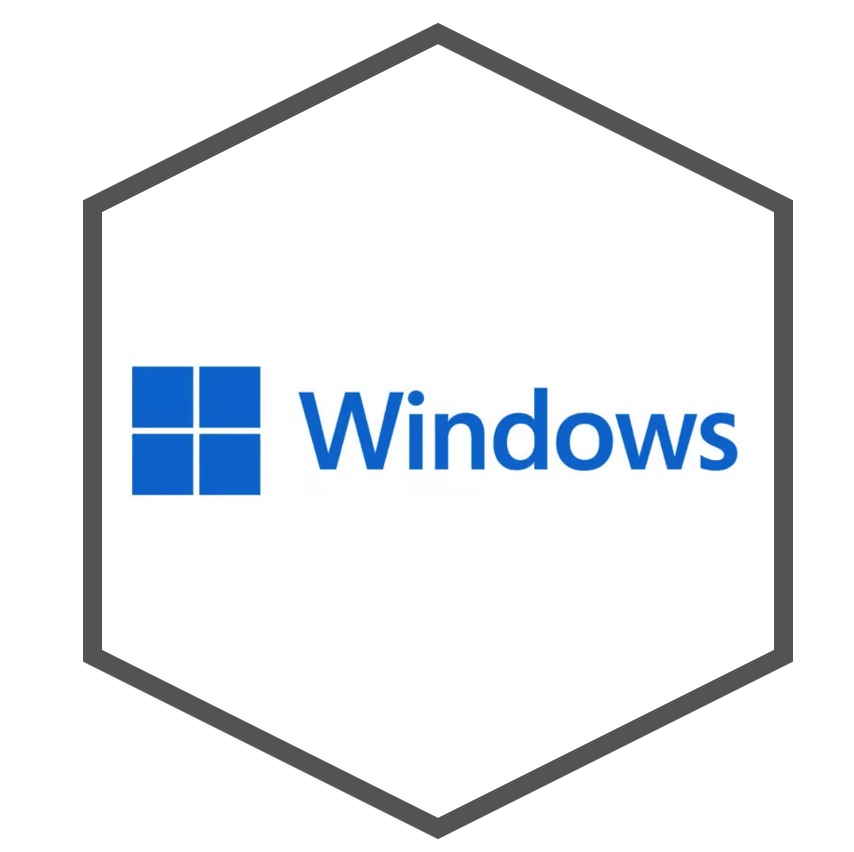We would like to welcome you as a Data Storage Provider

Welcome to HN, where you can earn money by letting us store data on your computer. By allowing companies to store their data on your computer, you can earn an average of €250 per month or more, depending on your computer configuration and internet bandwidth.
What roles can your computer have
Your computer can operate as a:
- Ledger – Stores encrypted, fragmented client data. You cannot read the data or see which client it belongs to.
- Node – Forwards data between other nodes and ledgers. It does not store any data.
- Both a Ledger and a Node – HN will determine when a specific role is assigned to your computer.
In the context of the Hyperion Node, a ledger and a node are key concepts. The Hyperion Node is a distributed database that uses a ledger-based approach to record and store data changes. Each node within the network acts as a storage point, responsible for holding and managing a segment of the data. By using a distributed ledger approach, the Hyperion Node guarantees that data is stored securely and that modifications to the data can be monitored and audited over time.
What is a ledger?
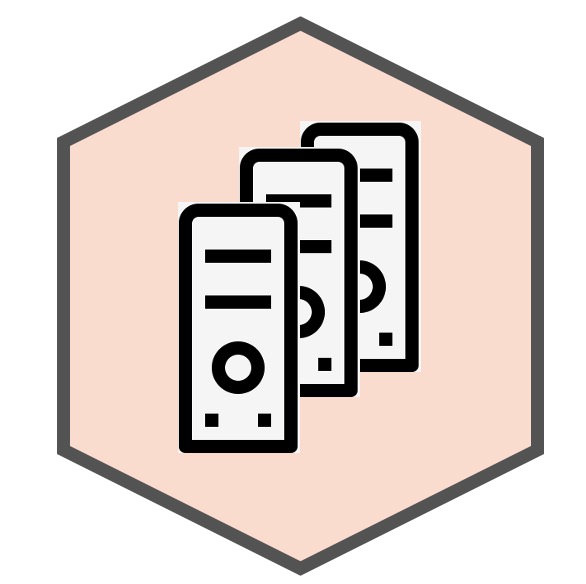
A ledger refers to a record-keeping system that maintains a chronological record of all data changes made to a specific database. It can be thought of as a log of all transactions that have occurred within the system, used to track the history of data changes over time. Additionally, a ledger is a database or record-keeping system used to monitor financial transactions. It provides a chronological list of all transactions within a set period, showing the amounts and the parties involved. We use a maximum of 1,2 TB of disk space per ledger. Therefore, we recommend an SSD of at least 2 TB per ledger.
What is a Node?
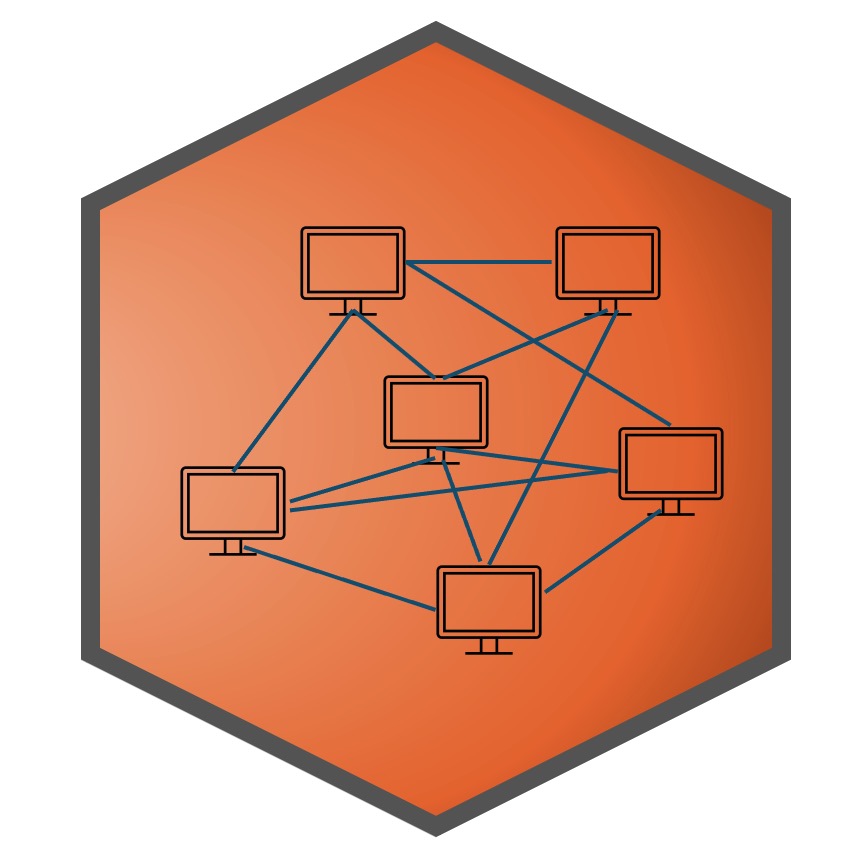
Nodes are computers or devices connected to a network that participate in checking and processing transactions, and are responsible for storing and managing data. Nodes are commonly used in distributed systems, where data is stored across multiple devices to enhance performance, redundancy, and fault tolerance. Each node in the system may store a part of the data, and several nodes can collaborate to provide a unified view of the data to the application or user. Starting at 64 GB of memory, you can choose to use your computer as a node in the HN network, in addition to functioning as a ledger. It is also possible to connect your computer solely as a node to the HN network. You will be presented with this option during the software installation if you have at least 64 GB of internal memory.
What is an instance?

An instance is a dedicated set of computing resources (CPU, RAM, and storage). It can be:
- A physical computer
- Or a partition on a computer (same requirements as a physical computer)
An instance can be a ledger, a node, or a combination of both. Often, an instance is equivalent to a computer. Nevertheless, computers with large memory and disk capacity, typically servers, can run multiple instances simultaneously. When this website refers to a computer connected to the HN network as a ledger and/or node, it is describing an instance.
How does it work?
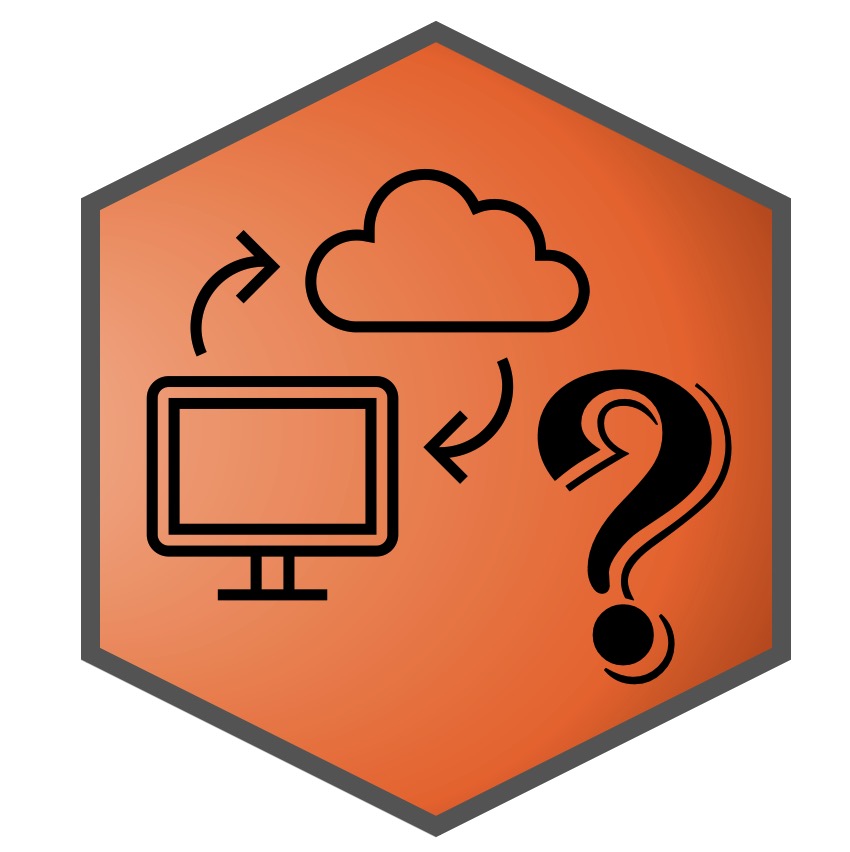
The process is simple: by registering your computer with the HN system as a ledger, you allow companies to store their data on it. This method of distributing data across multiple computers is known as distributed computing. Connecting computers to HN forms a network that enables the system to store data and perform complex calculations. Your computer's memory contribution to this network provides companies with access to inexpensive storage space without needing to invest in costly hardware or rent data centres, offering a practical solution for them.
With every application for a new DSP, HN assesses whether there is still room to expand the network. This can be in general, per country, or region. It is therefore possible that you will be placed on a waiting list.
Earning conditions
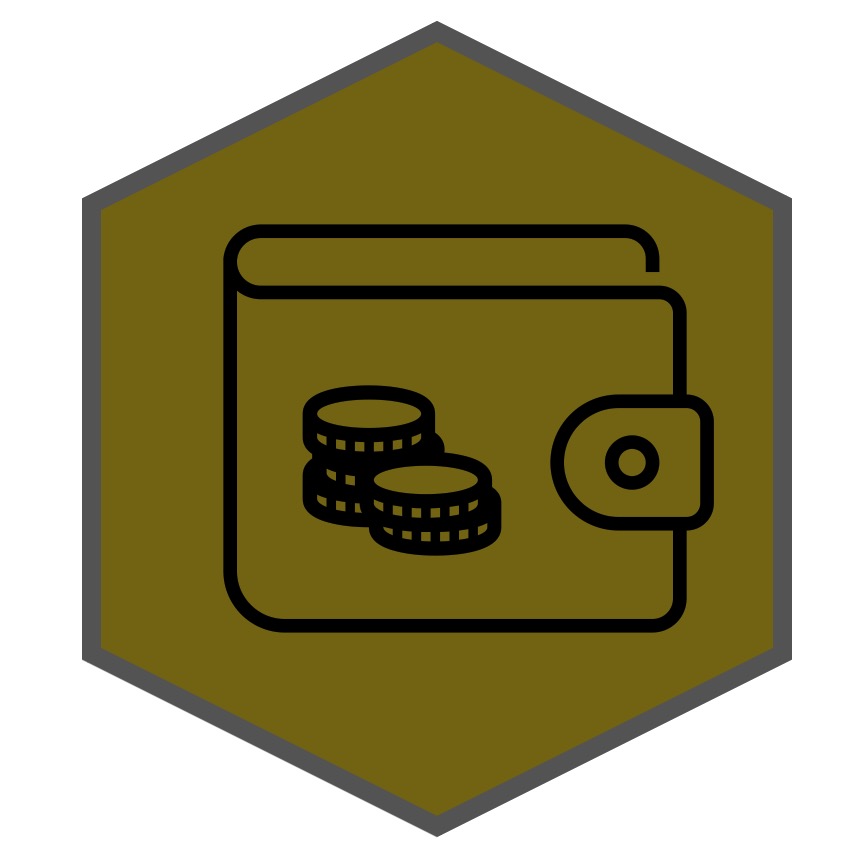
Your earnings are directly affected by availability, speed, and accessibility; the better and more reliable the performance of your device(s), the better your contribution to the HN network, the more you earn. We use a maximum of 1,2 TB of disk space per ledger. Therefore, we recommend an SSD of at least 2 TB per ledger.
Ownership of files
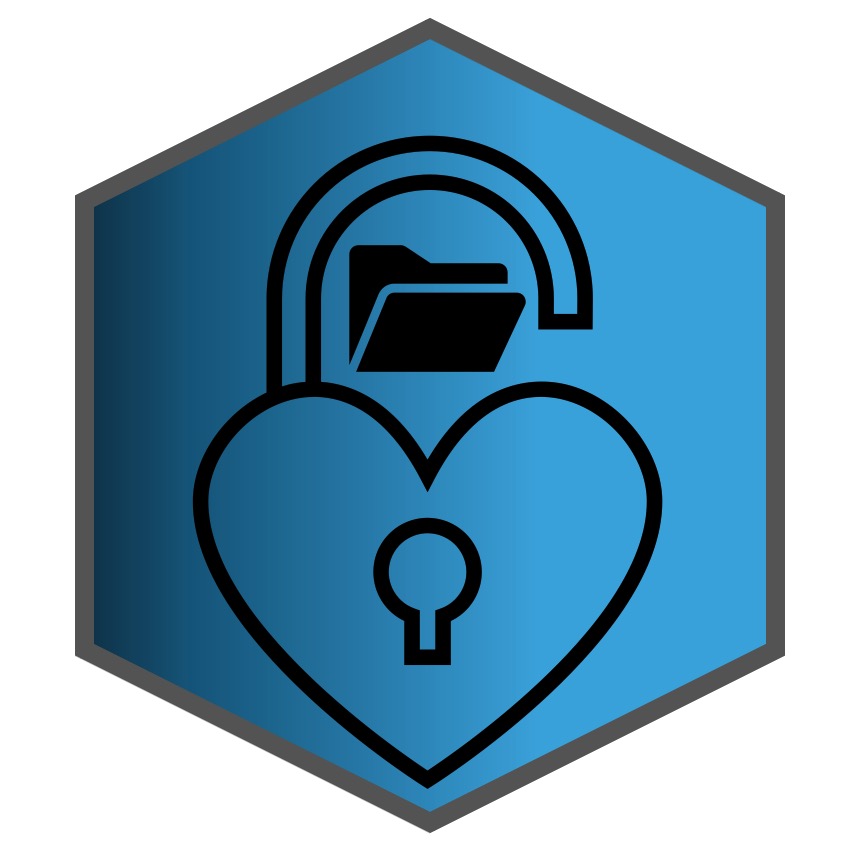
HN and/or its clients own the encrypted files stored on your computer(s). You are not allowed to open, manipulate, or move these files.
We will not have access to your personal files stored on your computer. This ensures your data privacy is maintained and allows you to earn money without revealing your personal information. In simple terms, it is not in our interest to access users' data; we are only committed to securely storing and processing our clients' data.
We don't collect your data, we don't scrape for it, crawl for it, or mine it—and we don't resell it.
Core wallets and instances
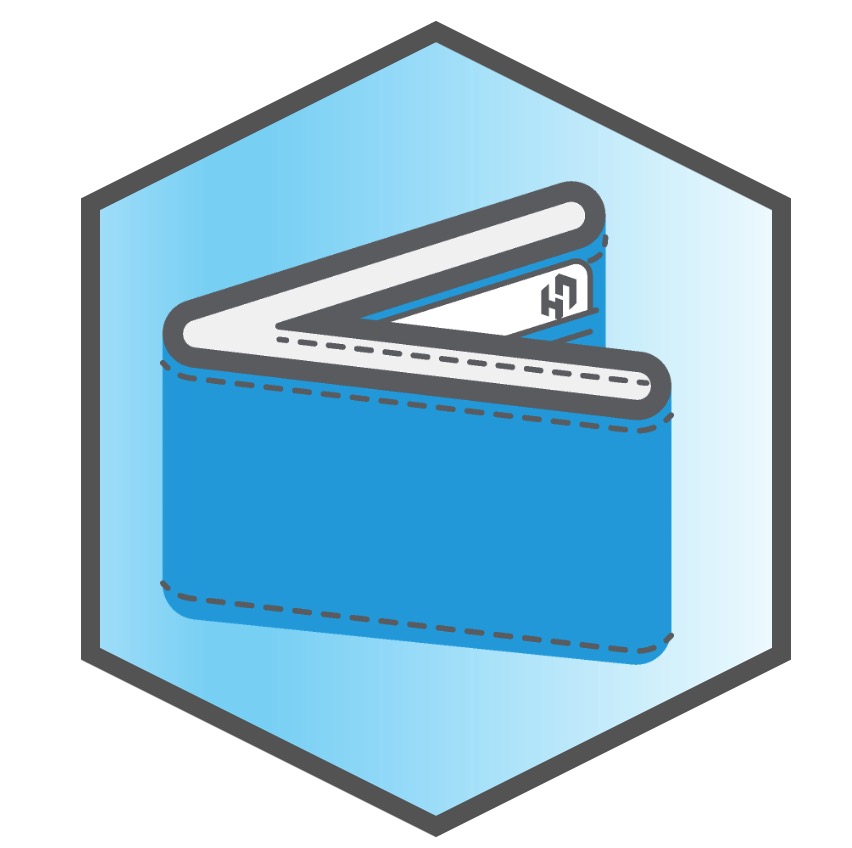
Each core wallet cannot have more than two (2) instances (as ledgers and/or nodes) for free; your memory, processing power, and internet connection can be unlimited. If you want to add more than two (2) instances to the HN network, you can acquire additional annual licenses within the HN application. There is only one (1) core wallet allowed per person.
Estimated earnings
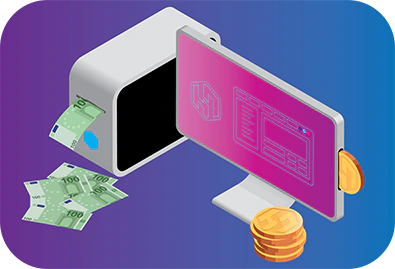
Computers or servers with more memory, processing power, and a better internet connection will obviously generate more earnings because their bandwidth can go up to 30 000 GB. However, these devices cost anywhere from €15,000 to €30,000.
The average time for earning back the money spent on a computer purchase (your return on investment [ROI]) will be between 4 and 7 months.
NOTE: These examples are based on estimations that consider a dedicated ledger with 1,2 TB of free disk space for HN, continuous use (24/7), and good available bandwidth.
| PC Size | Processor | Memory | Mbps (up/down) | Availability | Gross earnings per Month |
|---|---|---|---|---|---|
| Small | i7/i9 | 64 GB | 100/100 | 100 % | €225–€255 |
| Medium | 2 multipr. | 256 GB | 500/500 | 100 % | €255–€380 |
| Large | 4 multipr. | 1 024 GB | 500/500 | 100 % | €380–€2 500 |
Earn even more
Invite others to join HN’s network using your referral code and help expand the network. You will earn 5% of their first month's income as a reward.
You can earn even more by seizing the opportunity to become one of the DSP coordinators.
Read more about DSP coordinator roles
How to install
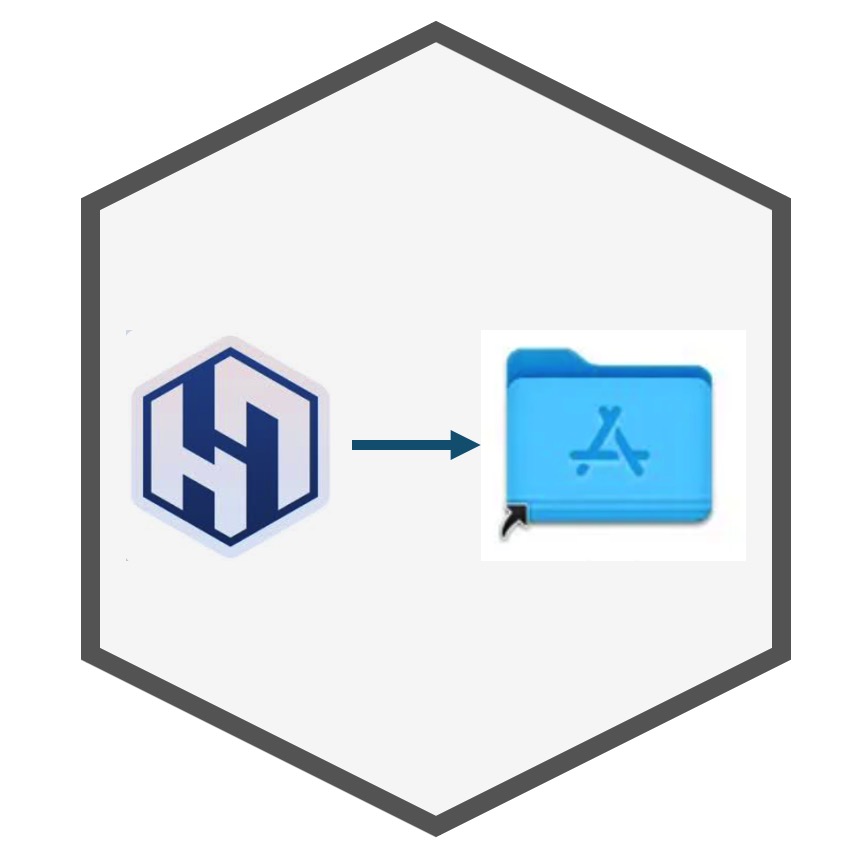
Click on this link to access all the technical documentation that walks you through every step to create a successful connection.
If you think our system is excellent, please tell your friends about it and share it with them. You will earn 5% of their first month’s revenue. You can do this within the app: go to the 'References' tab and enter an email address (up to 10 people each day).
Whether you are a student seeking extra income, a tech enthusiast interested in distributed computing, or simply someone looking for a new way to earn money online, HN has got you covered. Join our platform today and start transforming your financial situation with just your computer.
Welcome to the HN network!
The most important Rules in brief

- The encrypted files stored on your computer(s) belong to HN and/or its clients. You are not permitted to open, manipulate, or move these files.
- Each core wallet can have up to two (2) instances (ledgersand/or nodes) for free; your memory, processing power, and internet connection are unlimited.
- If you require more than two (2) instances, you can obtain additional annual licences through the HN application or from an HN partner.
- We recommend testing it on your current PC; however, we favour machines dedicated entirely to HN, with no other uses (simply store it in your closet and leave it undisturbed).
- Only one (1) core wallet is allowed per person.
- Your earnings are directly influenced by availability, speed, and accessibility; the better and more reliable your device(s) perform, the greater your contribution to the HN network.
- Your ledger and/or node will only function if you do not use a VPN. All VPN connections are blocked by HN.
- HN adjusts prices for DSP based on fees for storage and bandwidth, which are set according to country rules and regulations, as some countries have very protective laws for international business, and our services are based on these laws. HN also adjusts prices based on costs of electricity, internet, availability, and risk.
- It is possible that in your country, HN has partially or fully blocked access to the system. This may be due to sanctions or a higher risk for HN to provide our services in a specific country. It might be that in a later stage, we will start offering our service in your country. Please check availability regularly.
- With every application for a new DSP, HN assesses whether there is still room to expand the network. It is therefore possible that you will be placed on a waiting list.
